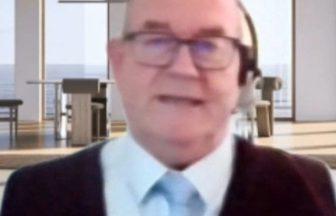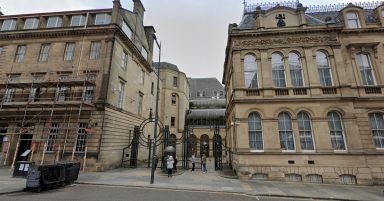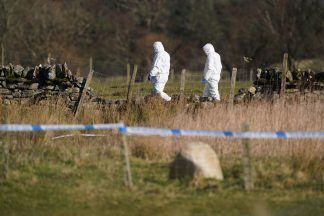Frontline staff at an intensive care unit told how they “can’t see the light at the end of the tunnel” as they struggle with the latest demands of the pandemic.
Covid cases around Scotland have begun to reduce in recent weeks, with test positivity rates dropping below 5%.
However, in Falkirk a recent rise in cases has been seen, which health bosses have attributed to increased testing and a number of large outbreaks.
Staff working at Forth Valley Royal Hospital told of a disconnect between relief and relaxation in the general public as numbers drop, while their wards get busier.
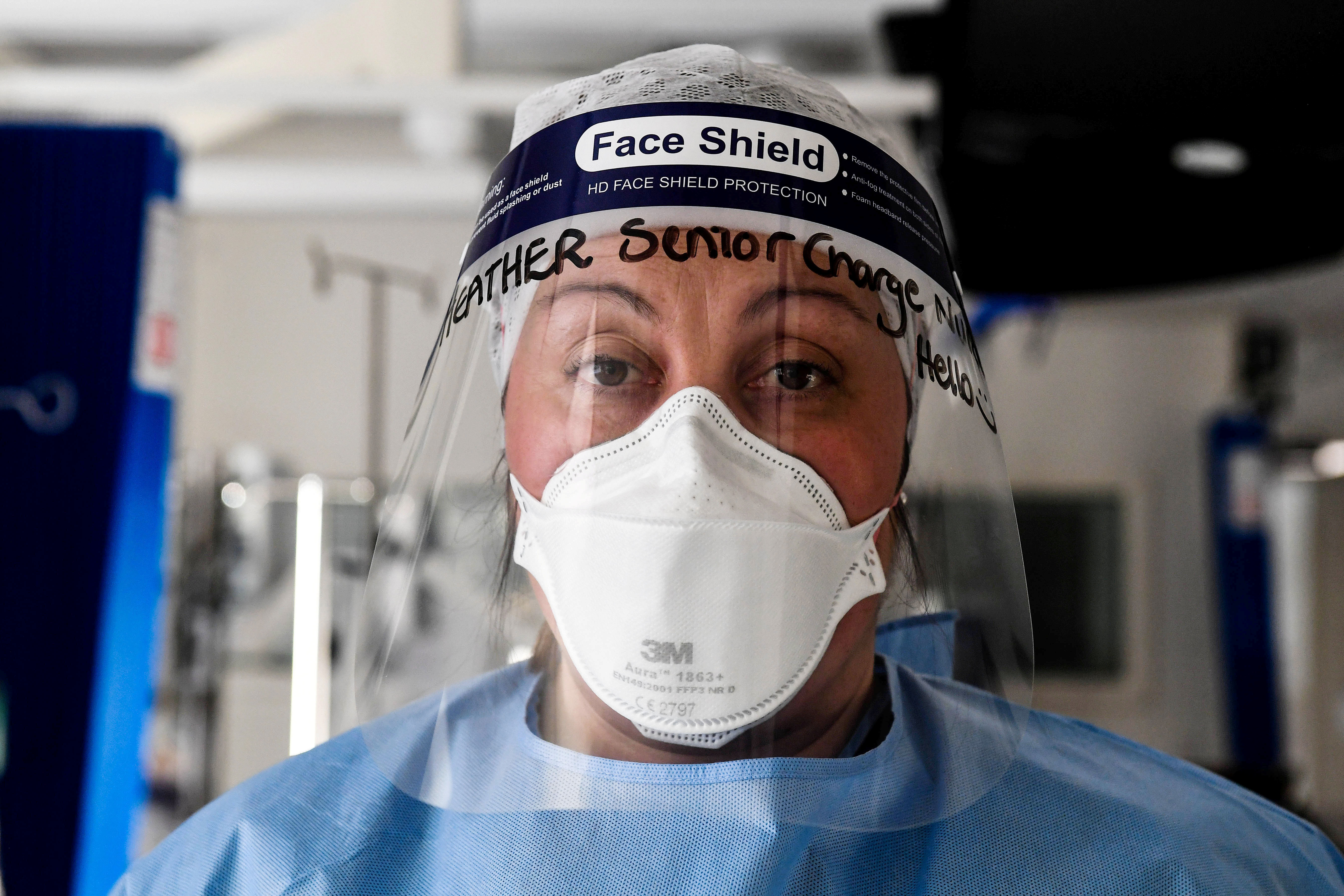 SWNS via SWNS
SWNS via SWNSSenior charge nurse Heather Riddoch said cases as of Wednesday had doubled from the beginning of the week.
She said: “We are very busy today and have been for the last few days. Each wave has got busier.
“The first wave wasn’t too bad, in the second wave our activity really increased, and we’re finding the same in this third wave.”
She also said she has seen adherence to Covid-19 restrictions “more lax” in the community recently.
‘Our peak has come slightly behind everybody else’s peak, so while the rest of the country might be relaxing a little bit and thinking that things are improving, this is a time when we are starting to see our numbers go up again.’
Clinical lead for ICU, Dr Fiona Mcilveney
Ms Riddoch added: “There definitely seems to be a difference – a shift in how people are feeling and we are seeing it’s still very busy here.”
Clinical lead for ICU, Dr Fiona Mcilveney, said as the rest of the country begins to relax, they are seeing numbers increase.
And the said staff have ‘risen to the occasion’ – coping with long hours, shorter breaks and wearing PPE every day by ‘squaring their shoulders, lifting their chins and getting on with it’.
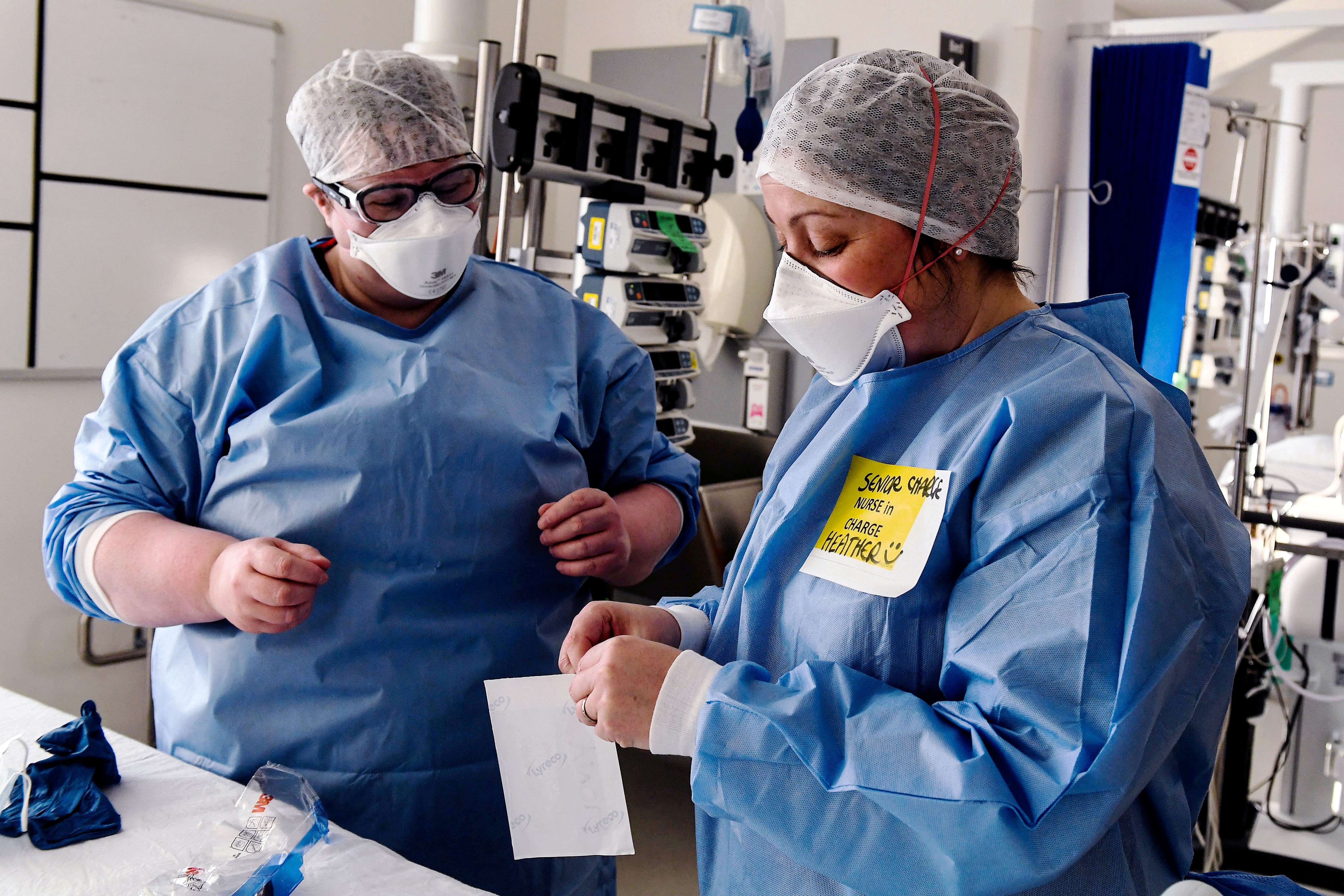 SWNS via SWNS
SWNS via SWNSDr Mcilveney said: “I think that’s certainly very important for us.
“Our peak has come slightly behind everybody else’s peak, so while the rest of the country might be relaxing a little bit and thinking that things are improving, this is a time when we are starting to see our numbers go up again.
“From a community perspective it’s really important for us that everybody continues to follow the government guidance and takes it seriously.”
One of the most difficult aspects to deal with has been an increased emotional toll for nurses who build relationship with patients struggling without their families.
Ms Riddoch: “Not having relatives in as often has really affected the staff because they start to feel personally responsible for patients.
‘At the moment we’re not really seeing much light at the end of the tunnel and certainly the last few weeks seem to have got busier for us here.’
Senior charge nurse Heather Riddoch
“We’re at the patient’s bedside for 11.5 hours, so we’re really developing relationships.
“If that patient becomes more unwell or sadly passes away, it is more impactful on the nurses and I’m sure on the medical staff as well.”
“At the moment we’re not really seeing much light at the end of the tunnel and certainly the last few weeks seem to have got busier for us here.
“We’re nurses, but we’re humans as well,” she says.
“We’ve got families, we’ve got children having to be home schooled. We just want to go back to normality.”
Follow STV News on WhatsApp
Scan the QR code on your mobile device for all the latest news from around the country


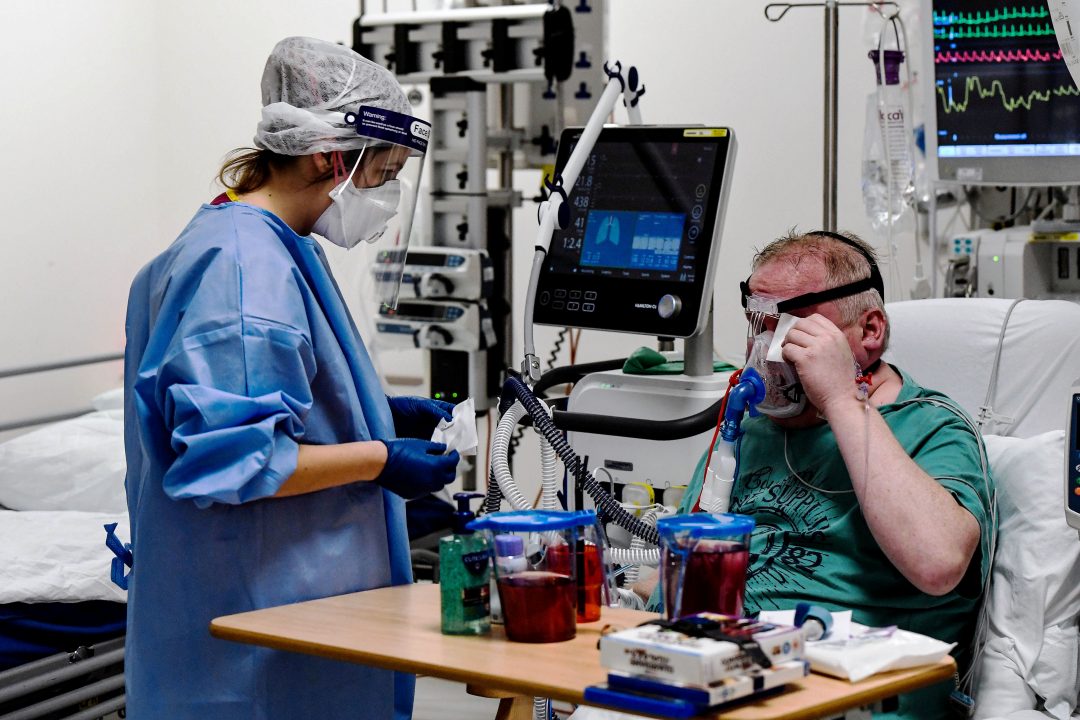 SWNS via SWNS
SWNS via SWNS
















